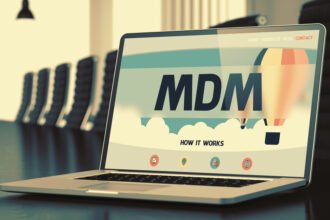Introduction
In our current business environment, Big Data has brought about unprecedented insights in all industries. Opportunities that Big Data has brought to our global economic landscape has been enormous, but it has also raised some concerns that have to be addressed. The is an exponential growth of technology, and we all need to keep up with the tonnes of data that all our systems produce. It is a fact that organizations, companies, consumer agencies and tech departments are struggling to keep up with big data. This has brought about several concerns that we are going to look at. Data discrimination, data security, and data privacy.
Problems that Big Data has brought about that we should be concerned about
Data privacy
When we look back at the fourth amendment that was ratified in 1791, the citizens of the United States were given the “reasonable expectation of privacy,” without a clue on how the future was going to change.
We can not deny the benefits and breakthroughs that Big Data services have brought, but at what cost to our privacy? Do we have any clue or control about how much personal information is being used by companies? We are at a level where we cannot do anything to salvage our situation. Unless you decide to dress in a mask, use cash in your transaction and walk to any destination without a cellphone. Governments are still trying to regulate internet policy because of the potential that sensitive data can have when it gets to evil hands.
Data security
Companies nowadays take personal information of individuals without their notice. Can you trust an organization to keep your data safe? The answer to this question gets more complicated by the day.
Big Data is increasingly growing, and the number of devices being connected to the internet is exploding. This exposes more data to security breaches, especially when companies do not use enterprise data encryption to safeguard their data. Organizations that do not encrypt their information are the most vulnerable to information attacks. Very many organizations are struggling with data security, before adding Big Data complexities. Most of these companies are struggling to make sense of the data they collect while having the issue of data security as a challenge.
Data discrimination
Big Data has made an impact in deciding the fate of individuals in different ways. When you look at the banking industry, credit scoring is used to help banks decide who can have access to loans. Even though it is useful in growing the business, Big Data is also allowing these companies to discriminate their customers. The worst part is that many people have already accepted the way companies analyze them through Big Data for a better experience to be delivered by these organizations. But what if some people find it hard to access the resources to information they need due to these insights?
Conclusion
There is a lot that is at stake when you look at these issues we have highlighted. The Federal Trade Commission Report, “Big Data A Tool for Inclusion or Exclusion?” highlighted some of these risks and issues in depth. Even though these issues are not yet close to being controlled, there is ongoing work that is taking place to counter these risks.
There are protection laws in the US such as Federal Trade Commission Act and the Credit Reporting Act that is used on Big Data Analytics. Apart from these laws, companies are encouraged to perform data encryption to safeguard their data, while individuals are also asked to use encryption systems when they are communicating via the web, to minimize information breach.
It is hard to fix these issues considering the ever-rising production of information and technology changes. If these campaigns to regulate Big Data are not championed progressively, we risk exposing ourselves to identity theft, lack of information security and other security threats we have not yet discovered.










